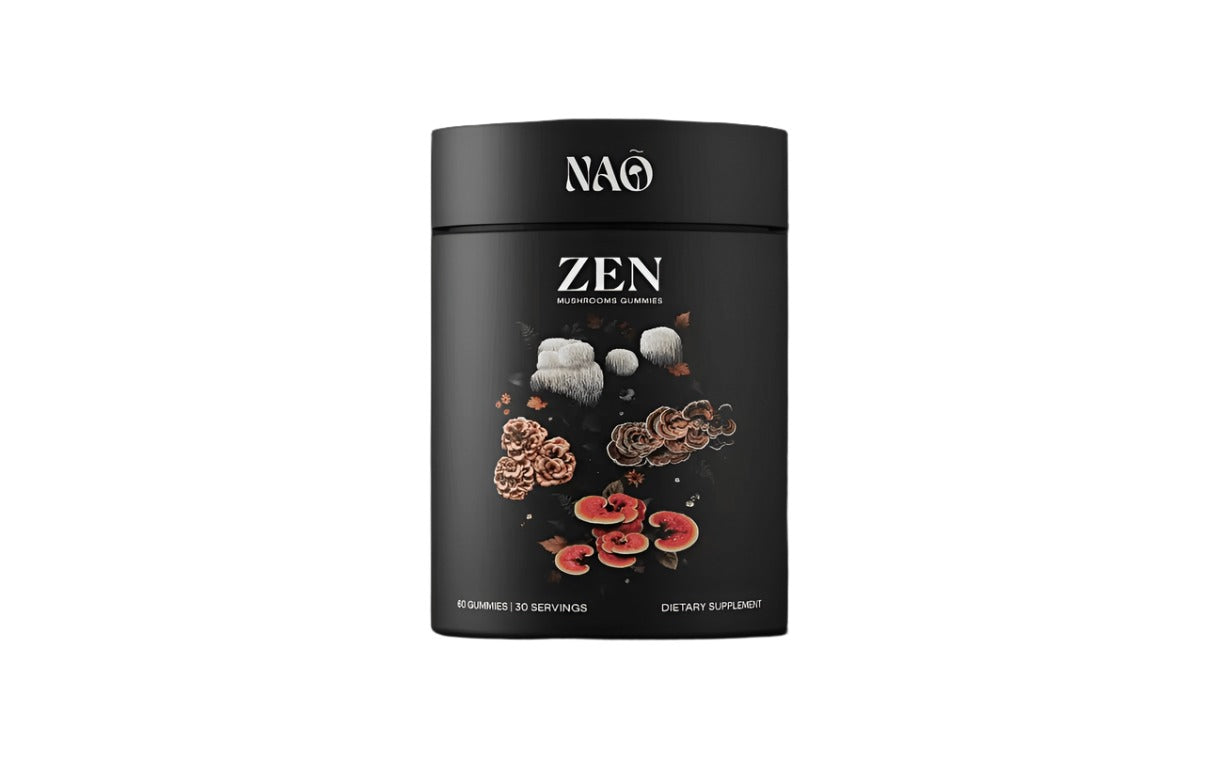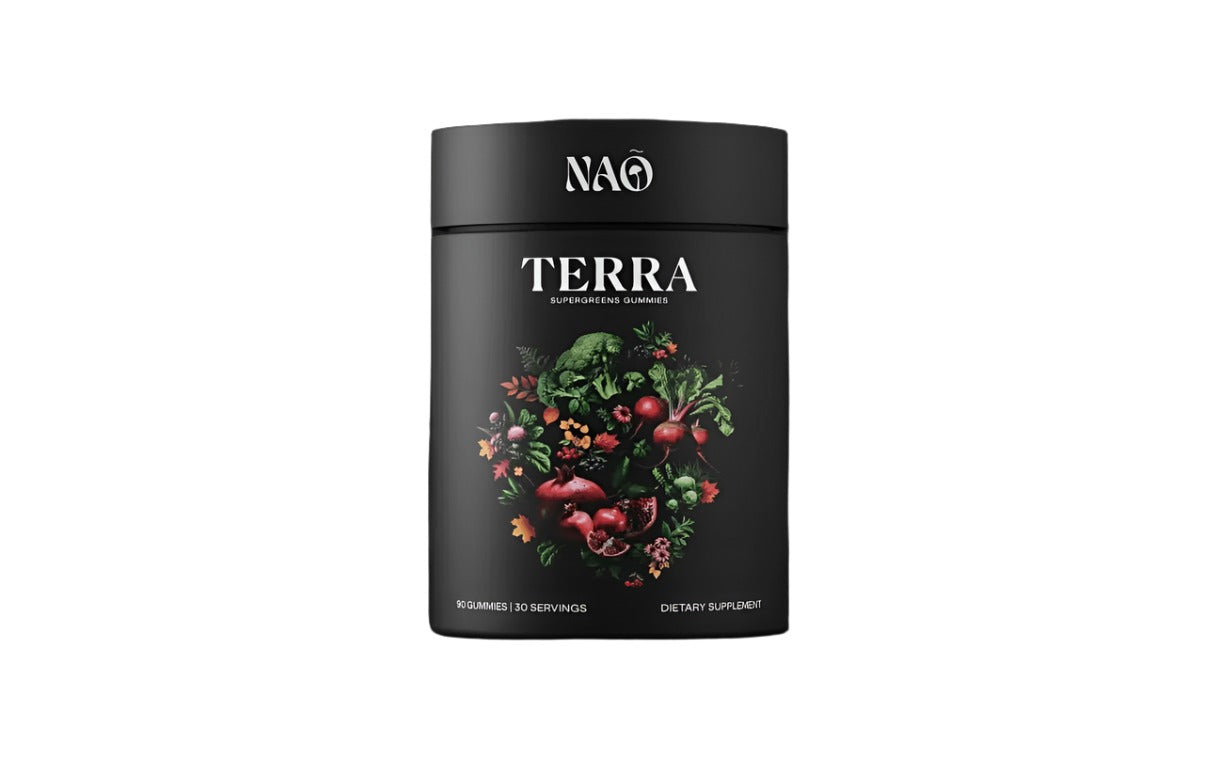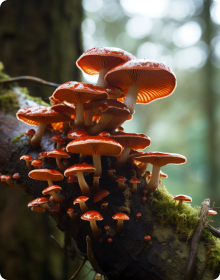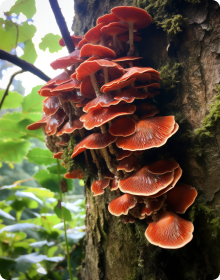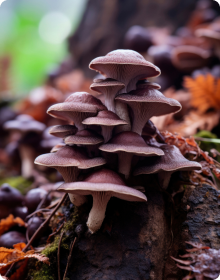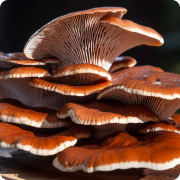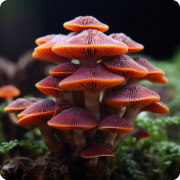Imagine you are eating a savory mushroom risotto and then, like a punch to the gut, it hits you: can these unassuming mushrooms really pack more protein than you ever thought possible? Is there protein in mushrooms? It is an interesting question. While mushrooms might not be on most people's radar for sources of protein, they have much more to offer than just that sudden rush of flavor.
In this article, we will delve into the amazing world of mushrooms and see exactly how they can grossly bump up your protein intake – not to mention host a lot of other health benefits. Now, let's dive right into the untapped potential inside these little mushroom-powerhouses!
Understanding Mushroom Protein Content
So, do mushrooms have protein? When thinking about sources of protein, one would not really consider mushrooms. In fact, these versatile fungi pack a surprising amount of protein that might not be presumed from the taste alone. Knowing how much protein is in mushrooms can help inform dietary decisions, especially if someone is looking to diversify their plant-based protein sources.

Ok, it is time to deeply analyze mushroom protein features.
Protein in Different Mushroom Varieties
Mushrooms have protein. It is a fact. They vary in their content of proteins:
- One hundred grams of your common white button mushroom contains about 3 grams of protein.
- The umami-rich shiitake mushroom has about 2 grams per 100 grams.
- Portobello mushrooms, a large oyster mushroom commonly used as a base in vegetarian dishes in a “meaty” form, offers around 3 grams per 100 grams.
While this doesn't seem much, consider the fact that mushrooms contribute toward your total intake of protein and do so more substantially with other foods high in protein combined.
How Mushroom Protein Compares to Other Plant-Based Proteins
Beans and lentils make up powerful proteins from plants, giving about 7-9 grams per 100 grams. Quinoa provides another good alternative source, with around 4 grams of protein per 100 grams. In reciprocation, mushrooms yield about 2-3 grams of protein, depending on the type, per 100 grams. Their unique benefits make them useful for any diet.

While mushrooms may not match the protein supply of beans or lentils, they play a significant role in a balanced diet due to their low-calorie count, rich nutrient content, and their ability to complement other food ingredients. When mixed with other protein-rich foods, mushrooms can help create a variety of satisfying and complete dishes, inspiring creativity in the kitchen.
Let’s conclude. So, how much protein in mushrooms? Below, find a few popular plant-based foods and their protein content:
- Mushrooms (amount depends on the variety): 2–3 grams
- Beans and lentils: 7–9 grams per 100 grams
- Quinoa: 4 grams per 100 grams
Would you like to add mushrooms to your daily diet? Try mushrooms on WellNao!
Nutritional Value of Mushrooms Beyond Protein
While many are drawn to the taste and texture of mushrooms, their nutritional value extends far beyond their protein content. The fungi are a rich source of vitamins and minerals, making them a nutritional powerhouse. So, do mushrooms have protein? How much? Let’s continue our talk about it.
Vitamins and Minerals in Mushrooms
Let’s start with a question: does mushroom have protein? Yes. But there is something more.
The fact that they are a dense source of some vitamins and minerals makes mushrooms good for health overall. Of the most important nutrients in mushrooms, what makes up the most outstanding are the B vitamins; significant contents are those of riboflavin, otherwise called B2, niacin or B3, and pantothenic acid, sometimes referred to as B5.
These vitamins are essential in energy production, generally in the brain, and for skin, eye, and liver health. In addition, they are one of the few foods that naturally have vitamin D. This vitamin is important for both bone health and immunity, especially during the months of low sunlight. Because of this, every health-conscious person should be aware of this unique nutritional makeup of mushrooms.
This is an area of speciality for mushrooms: minerals. The antioxidant selenium shields the cells from damage and supports the functioning of thyroids. The potassium provides one more critical way for mushrooms to help maintain healthy blood pressure and proper muscle and nerve function.
Note: when you eat mushrooms, you will be adding not only flavor to your food but also these essential nutrients.
Mushrooms as a Low-Calorie Food Option
Mushrooms are a smart choice for those on a low-calorie diet. With only about 22 calories per 100 grams, they are one of the lowest-calorie foods available. This makes them an ideal addition for weight management, allowing you to enjoy a satisfying portion without significantly increasing your calorie intake.
Mushrooms are not only low in fat and virtually cholesterol-free, but they also offer heart-healthy benefits. Their high water and fiber content can help fill you up, reducing the temptation to overeat. Whether you are looking to maintain your weight or shed a few pounds, mushrooms are a nutritious and satisfying addition to your meals.
Health Benefits of Including Mushrooms in Your Diet
Mushrooms are powerhouse foods for adequate nutrition and health. By knowing precisely what the significant health advantages of consuming mushrooms are, you get a better chance of deciding correctly for health.

Let’s know if mushrooms are a protein or not.
Antioxidant Properties of Mushrooms
Is mushroom a protein food? Absolutely. Mushrooms are extreme sources of antioxidants, which your body needs for free radicals. Those free radicals might impart oxidative stress and thus damage your cells; it increases the risk of chronic diseases like cancer and heart diseases.
Mushrooms contain ergothioneine and glutathione that help in the neutralization of hazardous molecules, reduce oxidative stress, and promote health. Add them to your dishes for a delicious morsel, and you are making a conscious step toward the sustenance of health in the long term by saving cells from damage.
Immune-Boosting Benefits
Of course, mushroom protein value is not so significant compared to meat. But – still – there are a lot of benefits. It is the defense of the body against diseases, and mushrooms surely have a lot of it. They contain, among other bioactive compounds, beta-glucans, which are highly appreciated and known for their properties in promoting immunity.
Beta-glucans are capable of activating a number of immune cells, with macrophages and natural killer cells being involved in defending the organism against diseases and alleviating inflammation. If consumed on a regular basis, mushrooms will make your immune response stronger to resist back against diseases. When you feed on them regularly, mushrooms will put more "gunpowder" into your immunity system, heightening your security from illnesses.
Feeding Good Gut Bacteria with Mushrooms
Since gut health represents the core of our general health status, it can avail much of the fungi. Mushrooms are a good source of dietary fiber, mainly in the form of chitin that aids in the proper digestion of the body.
Fiber found in mushrooms acts as food for bacteria in the gut and, hence, acts as a prebiotic. It helps in maintaining an adequate microbiome associated with proper digestion, absorption of nutrients, and even psychological good health.
You can add some mushrooms to your diet, which helps in keeping the gut environment clean for proper digestion and immunity.
How to Incorporate Mushrooms into Your Diet
Let’s revise. Do mushrooms contain protein? Yes. So, you can add some mushrooms to your diet for both flavor and nutrients. Whether you are an emerging chef or a beginning cook, mushrooms offer versatility, making them relatively easy to incorporate into many dishes.
Now, we are going to dive into how you can start using mushrooms in your everyday meals, from simple recipes to some pointers for getting the most nutrition out of these powerhouses.
Cooking with Mushrooms: Easy Recipes and Tips
They bring flavor with their earthy and rich taste to any dish. Begin by introducing it into your everyday meals with some simple recipes, such as sautéed mushrooms. Place a little olive oil or butter in a pan and add sliced mushrooms; let them cook until golden brown and finish with salt, pepper, and fresh herbs for a simple side that pairs well with just about anything.

You can also add them to pasta sauces, stir-fries, soups, or eat mushroom gummies. For something a little more filling, fill some large mushroom caps with a mixture of cheese, garlic, and breadcrumbs and bake until tender. Do not be afraid to experiment – mushrooms absorb flavors well and are thus a great addition to many dishes.
Mushrooms in Vegetarian and Vegan Diets
For vegetarians and vegans, mushrooms really do make good alternatives to meat simply because of their umami flavor and because some species are mainly known for their meaty texture. Portobello mushrooms are extra thick, so they will be a pretty lovely grill or roast item instead of a burger patty or steak. Just slice them thick, season them with your favorite spices, and there you have a highly satisfying and nutritious alternative.
Also, instead of portobello, use shiitake or cremini mushrooms in your stir-fries, tacos, and pasta dishes. With such a rich flavor and firm texture, they replicate the feel of meat perfectly, making them an excellent option for plant-based meals. Mushrooms can add to your vegetarian and vegan dishes in a way that brings about great taste and healthy food.
Buying and Storing Mushrooms
When choosing mushrooms, select firm, smooth, and free from blemishes. Avoid slimy mushrooms and those with dark spots; these are the first signs of spoiling. Once you have chosen your perfect mushrooms, it is essential to store them properly for long-lasting usage.
Store fresh mushrooms in a paper bag in the refrigerator. The paper lets them breathe, so excess moisture doesn't build up and makes them go bad quicker. Keep the mushrooms away from plastic, which traps moisture and has a tendency to reduce shelf life. Cook and dry or freeze the mushrooms if you would like to keep them longer. This way, you will always have shrooms to throw into your favorite dishes.
Are Mushrooms a Good Source of Protein?
There is a lot to like about mushrooms: they taste great, and in the kitchen, they are versatile. Where protein is involved, there could be more to it, though. While they do have some protein, they aren't actually considered that.
It doesn't mean they can't find a worthier place in your diet. Take a closer look at how much protein mushrooms actually contain and how they can round out your nutritional intake.
Critical Point Summary
So, do mushrooms have protein? While the amount may vary depending upon the type, mushrooms generally provide a decent supply of protein – with each cup containing about 3 grams.
While not high compared to other sources of protein like meat and legumes, protein in mushrooms really does stand for a rare blend of nutrients, ranging from vitamins and minerals to antioxidants. This makes them quite worthy of being added to your diet, particularly if combined with other sources rich in protein.
Mushrooms also add heft, or a meaty texture and flavor, to dishes, making them very satisfying as part of plant-based meals. While not an actual complete food in and of themselves, they can certainly help boost the nutritional value of your diet by making a contribution to your protein intake along with other foods.

Final Thoughts on Incorporating Mushrooms into Your Diet
Bring along the mushrooms for a power-packed nutritional profile. Though they won't be at the top of the list regarding protein in mushroom, they have many other solid arguments to their credit, which make them an excellent food for you to include in your meals. You can combine mushroom intake with other high-protein foods and enjoy their flavor and texture.
Well, let’s sum up: do mushrooms have protein in them? Yes. Whether you are on a vegetarian, vegan, or omnivorous diet, mushrooms can add just the right spice to your meals. They are so versatile that you won't get tired of trying different cooking techniques and matching them up to retain the nutritional quality and enjoyment of your diet.
Next time you are thinking about having a meal, do not forget to add some mushrooms for a delicious and healthful kick.
One more question to summarize: how much protein is in mushrooms? Mushrooms offer a modest amount of protein – about 3 grams per cup, depending on the variety. While this isn’t as high as some other protein sources, their nutritional benefits and versatility make them a valuable addition to a balanced diet. For a well-rounded approach to protein intake, consider incorporating mushrooms alongside other protein-rich foods.
